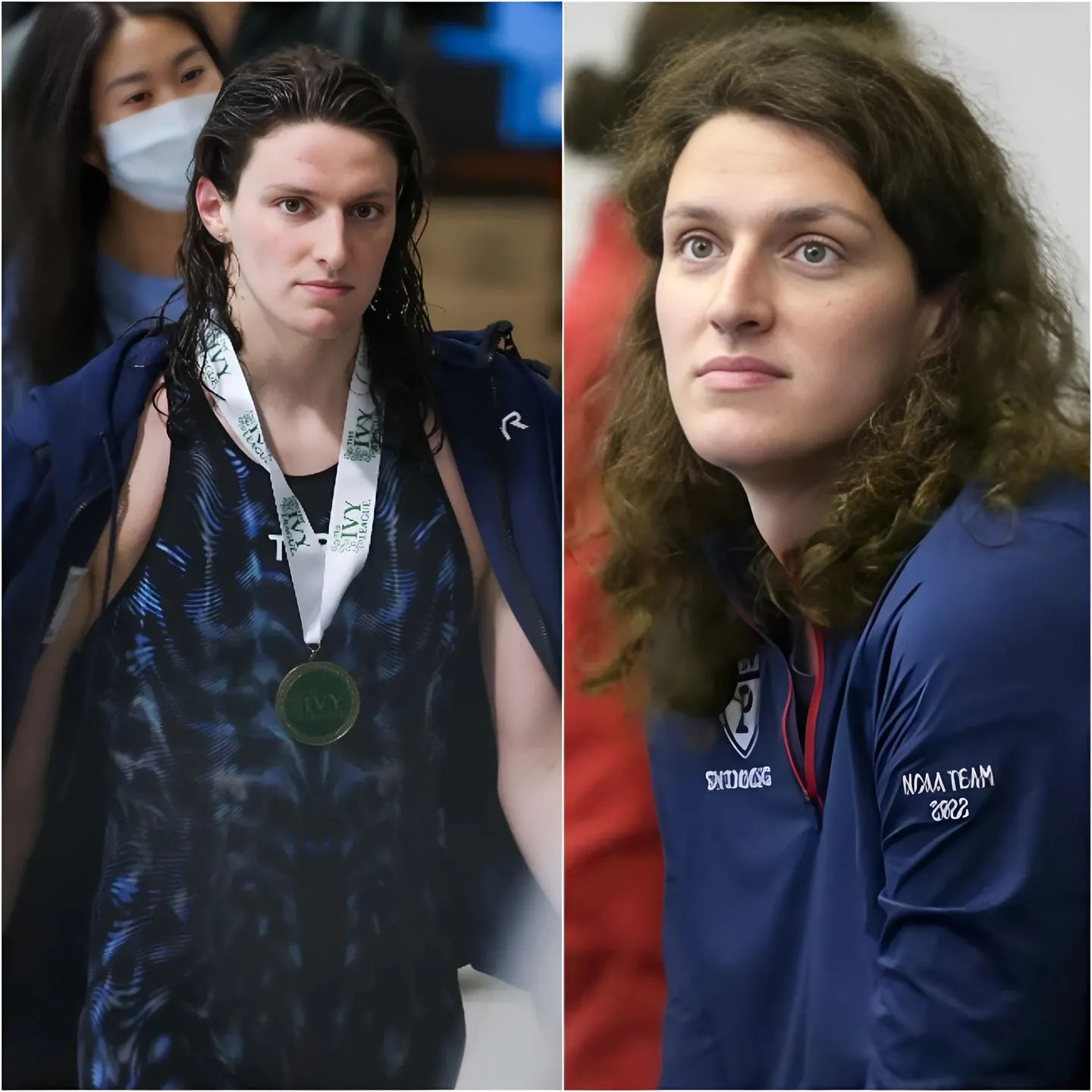In a landmark decision that has reignited the global debate over gender identity and fairness in women’s sports, swimmer Lia Thomas has lost her legal challenge against the regulations imposed by World Aquatics, effectively ending her hopes of qualifying for the upcoming Olympic Games in Paris.

The ruling, issued by the Court of Arbitration for Sport (CAS) on Monday, upholds the eligibility criteria set by World Aquatics (formerly FINA) which bars transgender women who have undergone male puberty from competing in elite women’s swimming categories. Thomas, who made history as the first openly transgender woman to win an NCAA Division I swimming championship in 2022, had sought to overturn the policy, calling it discriminatory and a violation of her human rights.
However, CAS determined that the governing body had the authority to set eligibility standards for the protection of fair competition and that the rules, though controversial, were based on scientific considerations rather than prejudice.
“Fairness Matters,” Say Supporters
The decision has been celebrated by many in the women’s sports community as a crucial step toward preserving fair competition. Female athletes, coaches, and advocacy groups who have voiced concerns for years about the potential advantages of athletes who have experienced male puberty applauded the ruling.
Riley Gaines, a former NCAA swimmer and outspoken advocate for women’s sports, released a statement on social media, saying:
“This ruling affirms what so many of us have been fighting for: fairness and integrity in women’s competition. Biological differences matter. This is not about hate—this is about protecting opportunities for women.”
World Aquatics echoed this sentiment, stating that their policy was created to balance inclusion with competitive fairness, particularly in high-performance events such as the Olympics.
“We respect all athletes, but we also have a duty to protect the integrity of women’s sport,” the organization said in a press release. “This decision by CAS supports our commitment to creating a fair and level playing field.”
Lia Thomas Responds
Lia Thomas, 26, expressed disappointment following the verdict, saying that she remains proud of her identity and her achievements. In a public statement, she said:
“While I am deeply disappointed by the decision, I will continue to advocate for trans inclusion in sports and equal rights for all athletes.”
Thomas has consistently argued that she followed all existing guidelines at the time of her NCAA competitions and that transgender athletes, particularly trans women, face unjust scrutiny and barriers that go beyond sports.
Her legal team has not indicated whether she plans to appeal the decision further or pursue other avenues for future international competition.
A Broader Cultural Moment
The case has once again placed transgender participation in women’s sports at the center of global debate. Advocates for transgender inclusion argue that trans athletes deserve a place in competitive sports and that restrictive policies contribute to broader discrimination against the trans community.
On the other hand, proponents of biological-based categorization in sports say the issue is not about identity but about the science of physical performance and preserving opportunities for female athletes, especially at the elite level.
Dr. Emma Barrett, a sports physiologist, explained:
“The current scientific consensus suggests that certain advantages gained through male puberty—such as bone structure, muscle mass, and lung capacity—are not entirely reversed by hormone therapy. That’s why this issue is so complex.”
What’s Next?
With the Olympics approaching, the CAS ruling sets a strong precedent for other sports organizations. Several federations across athletics, cycling, and swimming have introduced similar policies in recent years, citing both scientific research and calls for fairness from female athletes.
Lia Thomas’s Olympic dreams may be over for now, but the conversation she helped bring to the mainstream is far from finished. Around the world, sports bodies, lawmakers, and advocacy groups continue to grapple with how best to include transgender athletes without compromising fairness in sex-based categories.
One thing is clear: this ruling is more than just about one athlete. It marks a pivotal moment in the evolving intersection of sports, science, identity, and equality.
In a landmark decision that has reignited the global debate over gender identity and fairness in women’s sports, swimmer Lia Thomas has lost her legal challenge against the regulations imposed by World Aquatics, effectively ending her hopes of qualifying for the upcoming Olympic Games in Paris.
The ruling, issued by the Court of Arbitration for Sport (CAS) on Monday, upholds the eligibility criteria set by World Aquatics (formerly FINA) which bars transgender women who have undergone male puberty from competing in elite women’s swimming categories. Thomas, who made history as the first openly transgender woman to win an NCAA Division I swimming championship in 2022, had sought to overturn the policy, calling it discriminatory and a violation of her human rights.
However, CAS determined that the governing body had the authority to set eligibility standards for the protection of fair competition and that the rules, though controversial, were based on scientific considerations rather than prejudice.
“Fairness Matters,” Say Supporters
The decision has been celebrated by many in the women’s sports community as a crucial step toward preserving fair competition. Female athletes, coaches, and advocacy groups who have voiced concerns for years about the potential advantages of athletes who have experienced male puberty applauded the ruling.
Riley Gaines, a former NCAA swimmer and outspoken advocate for women’s sports, released a statement on social media, saying:
“This ruling affirms what so many of us have been fighting for: fairness and integrity in women’s competition. Biological differences matter. This is not about hate—this is about protecting opportunities for women.”
World Aquatics echoed this sentiment, stating that their policy was created to balance inclusion with competitive fairness, particularly in high-performance events such as the Olympics.
“We respect all athletes, but we also have a duty to protect the integrity of women’s sport,” the organization said in a press release. “This decision by CAS supports our commitment to creating a fair and level playing field.”
Lia Thomas Responds
Lia Thomas, 26, expressed disappointment following the verdict, saying that she remains proud of her identity and her achievements. In a public statement, she said:
“While I am deeply disappointed by the decision, I will continue to advocate for trans inclusion in sports and equal rights for all athletes.”
Thomas has consistently argued that she followed all existing guidelines at the time of her NCAA competitions and that transgender athletes, particularly trans women, face unjust scrutiny and barriers that go beyond sports.
Her legal team has not indicated whether she plans to appeal the decision further or pursue other avenues for future international competition.
A Broader Cultural Moment
The case has once again placed transgender participation in women’s sports at the center of global debate. Advocates for transgender inclusion argue that trans athletes deserve a place in competitive sports and that restrictive policies contribute to broader discrimination against the trans community.
On the other hand, proponents of biological-based categorization in sports say the issue is not about identity but about the science of physical performance and preserving opportunities for female athletes, especially at the elite level.
Dr. Emma Barrett, a sports physiologist, explained:
“The current scientific consensus suggests that certain advantages gained through male puberty—such as bone structure, muscle mass, and lung capacity—are not entirely reversed by hormone therapy. That’s why this issue is so complex.”
What’s Next?
With the Olympics approaching, the CAS ruling sets a strong precedent for other sports organizations. Several federations across athletics, cycling, and swimming have introduced similar policies in recent years, citing both scientific research and calls for fairness from female athletes.
Lia Thomas’s Olympic dreams may be over for now, but the conversation she helped bring to the mainstream is far from finished. Around the world, sports bodies, lawmakers, and advocacy groups continue to grapple with how best to include transgender athletes without compromising fairness in sex-based categories.
One thing is clear: this ruling is more than just about one athlete. It marks a pivotal moment in the evolving intersection of sports, science, identity, and equality.






